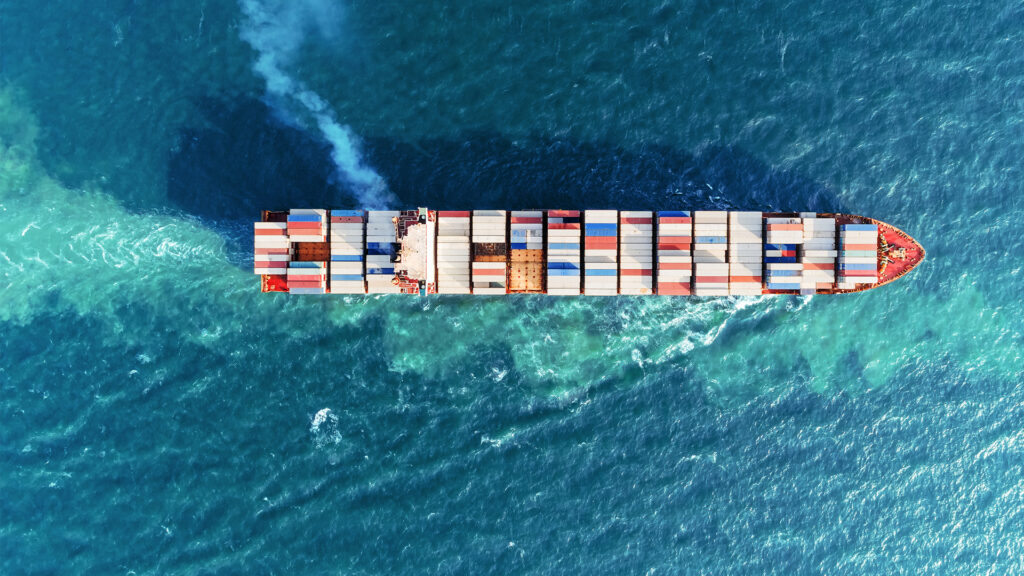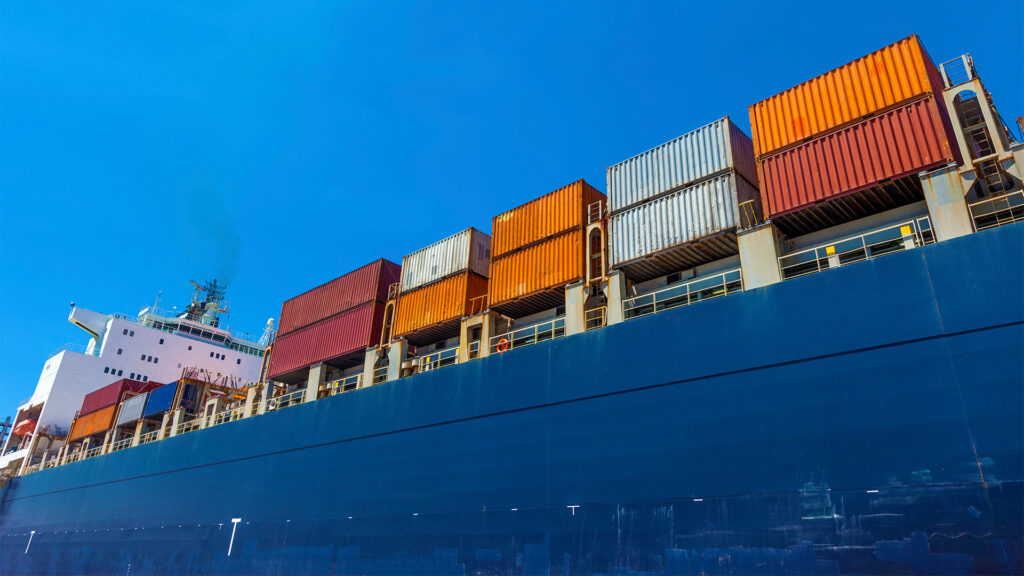Full Federal Court rules that London arbitration clauses in voyage charterparties are valid and enforceable in Australia
In a very recent appeal decision that will be welcomed worldwide by both shipowners and charterers involved in the export and import of cargoes to and from Australia, the Full Court 1 of the Federal Court of Australia has held in the case of Dampskibsselskabet Norden A/S v Gladstone Civil Pty Ltd2 that a London arbitration agreement contained in a voyage charterparty was not rendered ineffective by reason of section 11 of the Carriage of Goods by Sea Act 1991 (Cth) (COGSA).
That was because the Court determined that a voyage charterparty was not a “sea carriage document” for the purposes of COGSA. Consequently, the Court ordered that the London arbitral award obtained by Owners under the voyage charterparty be enforced in Australia.
Background
Dampskibsselskabet Norden A/S, (Owners) had entered into a voyage charterparty on the AMWELSH 93 form with Gladstone Civil Pty Ltd (Charterers) for the carriage of a cargo of coal from Australia to China. The charterparty provided for all disputes to be determined in London by arbitration. A dispute arose as to Owners’ entitlement to demurrage. That dispute was referred by Owners to arbitration in London. The arbitrator made two awards in Owners’ favour. The first, a declaratory award that the arbitrator had jurisdiction to hear the dispute, and the second, a final award for the amount of the unpaid demurrage plus interest and costs.
The decision at first instance
Owners applied to the Federal Court of Australia to have the awards recognised and enforced in Australia. The application was met by a challenge from Charterers who successfully argued that the awards were unenforceable because the arbitration clause was of no effect by reason of section 11 of COGSA.
Section 11 of COGSA renders ineffective any agreement which purports to preclude or limit the jurisdiction of an Australian Court in respect of, inter alia, a “sea carriage document” relating to the carriage of goods to or from Australia.
The relevant provisions of section 11 provide:
11. Construction and jurisdiction
The main issue for determination by the primary Judge was whether the voyage charterparty was a “sea carriage document” within the meaning of section 11. The primary Judge held that it was. This had the effect of attracting the operation of section 11(2)(b) thereby rendering the arbitration clause invalid.
In reaching his decision the primary Judge noted that COGSA did not contain a definition of “sea carriage document”. He said that although a definition appeared in the amended Hague Rules contained in Schedule 1A to COGSA, strictly speaking, that definition applied only to the amended Hague Rules and not to COGSA itself, although the definition was of some assistance.
His Honour also relied on earlier authorities such as The Blooming Orchid 3where it was held under section 9 (the predecessor to section 11) of the Carriage of Goods by Sea Act 1924 (Cth) that the expression “document relating to the carriage of goods from any place in Australia” encompassed a voyage charterparty.
Reference was also made to the 1997 and 1998 legislative changes4 which introduced into COGSA the expression “sea carriage document”. These, the primary Judge said, indicated an intention to broaden the class of documents covered by section 11 (1)(a).
In reaching his decision, the primary Judge expressly stated that he disagreed with the approach taken in an earlier decision in Jebsens International (Australia) Pty Ltd v Interfert Australia Pty Ltd 5. In Jebsens the Supreme Court of South Australia held that a voyage charterparty was not a “sea carriage document” for the purposes of COGSA and permitted Owners to enforce a London arbitration award in Australia. The Court noted that in interpreting section 11 of COGSA regard should be had to the definitions in the amended Hague Rules which drew distinctions between charterparties and “sea carriage documents”.
The majority decision on appeal
The majority determined that the voyage charterparty was not a “sea carriage document” within the meaning of section 11.
The Judges’ process of reasoning was as follows:
- The meaning of the term “sea carriage document” as used in COGSA must be ascertained from COGSA as a whole, including the amended Hague Rules.
- The definition of “sea carriage document” in Art 1(1)(g) of the amended Hague Rules focused on documents having characteristics similar to bills of lading.
- There were numerous provisions in COGSA (e.g. section 3) and the amended Hague Rules (Art 1, 3, 5, 10(6) and (7)) which treated a charterparty, including a voyage charterparty, as distinct from a contract for the carriage of goods by sea or a “sea carriage document”.
In this regard, Justice Rares noted that the definitions of “contract of carriage”, “carriage of goods by sea” and “sea carriage document” in Art 1 were predicated on the distinctions made in Art 3, 5 and 10 between the functions of a contract of carriage and a charterparty. Relevantly, Art 5 explicitly excluded the application of the amended Hague Rules to charterparties. The distinction, it was said, would be lost if the concept of a “sea carriage document” encompassed voyage charterparties. - The Sea Carriage Documents Acts of the States and Territories dealing with the transfer of rights under, amongst other things, sea carriage documents, maintained a distinction between a voyage charterparty and a “sea carriage document”.
- Charterparties by their nature and function are different from sea carriage documents. Charterparties are contracts for the hire of a ship whereas sea carriage documents are contracts for the carriage of cargo.
- The Court recognised the importance of maintaining the traditional commercial practice in the shipping trade of referring disputes to international arbitration, a practice which was underpinned in Australia by the New York Convention 6 and the UNICTRAL Model Law 7, both of which had been given the force of law in Australia by the International Arbitration Act 1974 (Cth) (IAA).
The continued capacity of commercial parties in an international context to refer disputes to international arbitration was also consistent with the stated objects of COGSA 8, which included the introduction of a marine cargo liability regime that was “compatible with arrangements existing in countries that are major trading partners of Australia”.
The minority decision
Justice Buchanan (dissenting) said that the term “sea carriage document” in section 11 should be given the same meaning as is given to that term by Art 1(1)(g) of the amended Hague Rules. His Honour found that the voyage charterparty was a non-negotiable document “which contained or evidenced a contract of carriage” within the terms of Art 1(1)(g)(iv). However, it did not necessarily follow that all “sea carriage documents” would be exposed to the operation of section 11 of COGSA rendering them ineffective.
In the present case, the voyage charterparty was by its particular provisions and character an enforceable contract for the carriage of freight and was therefore a “sea carriage document” relating to the carriage of goods and it did not matter that a bill of lading issued under the charterparty would also be a “sea carriage document”. It followed that section 11(2) of COGSA rendered the award made under that voyage charterparty ineffective and unenforceable in Australia.
Commentary
The majority ruling of the Full Court has, in light of the uncertainty created by the earlier conflicting decisions, provided welcome clarification on the issue of the validity of foreign arbitration clauses in voyage charters for carriage of goods to and from Australia. The outcome is consistent with the decision in the Jebsens case in which HFW represented the successful party.
The significance of the judgment is that it puts beyond doubt that foreign arbitral awards 9 (and for that matter foreign court judgments10) obtained under voyage charterparties for the carriage of cargoes to or from Australia will be capable of enforcement in Australia.
The effect of the decision is to restore to international chartering operators involved in Australian trade the freedom to contract on their own terms regarding arbitral method or forum, unencumbered by any Australian statutory constraints. The Full Court has, by its decision, recognised the importance of international arbitration as a means of resolving disputes between commercial parties in a global context.
Footnote
- By a 2-to-1 majority: Mansfield and Rares, JJ (majority), Buchanan, J (dissenting).
- [2013] FCAFC 107.
- Sonmez Denizcilik Ve Ticaret Anonim Sirketi v MV “Blooming Orchard” (No 2) (1990) 22 NSWLR 273 followed in BHP Trading Asia Ltd v Oceaname Shipping (1996) 67 FCR 211.
- Particularly the insertion of section 7(2)(a) which permitted amendments to COGSA by regulations for the purpose, inter alia, “to provide for the coverage of a wider range of sea carriage documents (including documents in electronic form)”.
- [2012] SASC 50.
- Convention on Recognition and Enforcement of Foreign Arbitral Awards (1958).
- UNICITRAL Model Law on International Commercial Arbitration.
- See section 3 of COGSA.
- Subject to satisfying the relevant provisions of the IAA.
- Subject to satisfying the Foreign Judgments Act 1991 (Cth).
For more information please contact Jenny Bazakas, Senior Associate, on +61 (0)3 8601 4599 or jenny.bazakas@hfw.com, or your usual contact at HFW.
Download a PDF version of ‘Full Federal Court rules that London arbitration clauses in voyage charterparties are valid and enforceable in Australia’








